
 The School of Public Policy “Mother Teresa” is part of a network of twenty Schools of political studies organized in cooperation with the Council of Europe. Since the creation of the first school of political studies in Moscow in 1992, by a group of civil society activists seeking to promote democratic values these schools were established to train future generations of political, economic, social and cultural leaders in countries in transition. They run annual courses of seminars and conferences on topics such as European integration, democracy, human rights, the rule of law, and globalization, with the participation of national and international experts.
The School of Public Policy “Mother Teresa” is part of a network of twenty Schools of political studies organized in cooperation with the Council of Europe. Since the creation of the first school of political studies in Moscow in 1992, by a group of civil society activists seeking to promote democratic values these schools were established to train future generations of political, economic, social and cultural leaders in countries in transition. They run annual courses of seminars and conferences on topics such as European integration, democracy, human rights, the rule of law, and globalization, with the participation of national and international experts.

The mission of the School of Public Policy “Mother Teresa” is to promote liberal values, democratic culture and improve policy making processes in the country. We offer democratic education to:
• To encourage the development of responsible and ethical leadership also accepting the principles of Mother Teresa to increase social justice and to aid “in the struggle to overcome poverty and distress, which also constitute a threat to peace.”
• To strengthen competences for Democratic Culture and provide opportunities for political and civic leaders from across the spectrum of public life to come together to discuss a wide range of current political, social and economic issues
• To encourage transparent public policy making process which takes into account the core principles of good governance and the different public interests and opinions;
• To enhance public dialogue and media debate by fostering appreciation of the values of liberal multiculturalism, encouraging participation, inclusion and the free exchange of ideas, developing open, tolerant and diverse societies.
In principle the School lasts from October to June and typically offers: four weekend courses, CRPM discussions and a World Forum for Democracy at the Council of Europe. The weekend courses have an intensive program of lectures, workshops and debates. The CRPM discussions are offered by eminent persons whose introduction is followed by Chatham House rule discussion on topics related to the themes of the School. The Strasbourg World Forum for Democracy is an annual gathering of leaders, opinion-makers, civil society activists, representatives of business, academia, media and professional groups to debate key challenges for democracies worldwide. All weekly lectures organised in Skopje are open to alumni. This is an opportunity for them to meet up with that year’s participants. In addition, one weekend seminar is typically organised for and by the alumni of the School. Distinguished alumni have become lecturers of the School.
All participants must speak and write fluent English and Macedonian. The participants must attend all the weekend courses, and a number of CRPM lectures followed by a discussion. They are expected to fulfill the tasks assigned to them at the lectures. Diplomas by the Council of Europe and CRPM are awarded at the end of the academic year. Participants are mid-career professionals (25-45 years) in the public and private sectors, selected on the basis of the following criteria: advanced knowledge in the field of public policy; readiness to work on improving liberal democracy in Macedonia and minimizing poverty in the country; and multicultural values. In the selection process we take into account that participants with different political, social, cultural, gender and ethnic identities in the country are represented. We expect the participants to be fully involved in the whole educational process. We see them as future partners, who will together with the lecturers and guests, build a new political and governmental culture.
Since its inception in 2003, and refashioning in January, 2011 the School of Public Policy “Mother Teresa” trains future generations of Macedonian political, economic, social and cultural leaders and policy makers. The themes covered by the School are: Improving Public Policy; Issues in Euro-Atlantic affairs and enlargement; Liberal multiculturalism in theory and practice; and Current Issues in Macedonian and Western Balkan politics. We are proud to have among our participants and former staff: Sanja Lukarevska, Director of Public Revenue Office (participant at the regional School RAD 2016); Goran Ilikj, Dean of Faculty of Law, University of Kliment Ohridski,(Generation 2011/2); Spokesperson of The State Election Commission of Macedonia, Ljupka Guguchevska (2011/2); Ivan Stefanovski, Director of the think tank Center for European Studies EuroThink(2011/2); Members of Parliament, Betijan Kitev (2010/1) Tanja Tomikj, Maja Morachanin (both RAD 2013), Ermira Mehmeti (RAD 2014); Deputy Director of the State Statistical Office, Dejan Stankov (2014/5); Members of the Government of the Republic of Macedonia, Ana Blazhevska (2013/4), State Secretary of the Secretariat of European Affairs; Hristina Odzaklieska Deputy Minister of Environment and Physical Planning (2015/6), Driton Kuchi, Minister of Economy (2011/2), Dragan Tevdovski, Advisor to Executive Director at International Monetary Fund and Minister of Economy (2011/2), Mila Carovska, Minister of Labor and Social Policy (2014/5), Ljupcho Nikolovski, Minister of Agriculture, Forestry and Water Economy (RAD 2015); the Director of Electricity Transmission System Operator, MEPSO and former Director General of Railways of Macedonia Orhan Murtezani (2015/6); The Director of the Diplomatic Academy of the Ministry of Foreign Affairs, Adelina Marku (RAD 2013); Nedzad Mehmedovic, Deputy Minister for Political System and Inter-Community Relations (School Coordinator 2010-2015); Deputy Mayor of Skopje, Aleksandar Trajanovski (2021/2); Aleksandar Klashninovski Head of Instructional Design Department at LEORON Institute, (2014/5); Marija Fileva, Berlin Process and Cooperation in Southeast Europe Adviser to the Prime Minister of Macedonia (2017/8); Toshe Zafirov, Special Adviser of the President of Macedonia (2010/1); Svetlana (Kjoseva) Crvenkovska, Lawyer at European Court of Human Rights (2014/5). Meanwhile, Aleksandar Karatosho, Gent Salihi, Irena Shumenkovska, Ivan Durgutov, Mila Mladenova are Young European Ambassadors.
The School’s principle funding is provided by the Council of Europe. Additional donors include EU, NATO and GiZ and others. CRPM runs the School of Public Policy “Mother Teresa” since 2011.
Contact
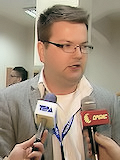 Main Office: St. Cico Popovik Zgrada 6, Vlez 2, Stan 9,1000 Skopje, Macedonia
Main Office: St. Cico Popovik Zgrada 6, Vlez 2, Stan 9,1000 Skopje, Macedonia
Director: Zhidas DASKALOVSKI
Tel.: +389 2 31 09 932,
E-mail: daskalovski@crpm.org.mk

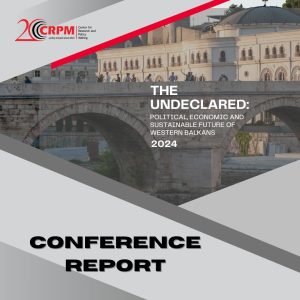
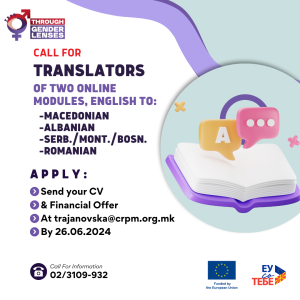
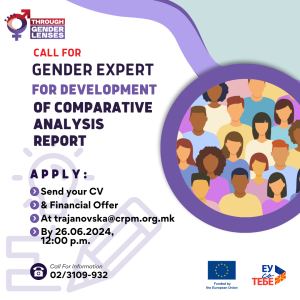
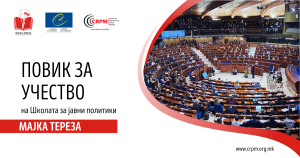
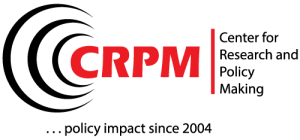
Leave a Reply